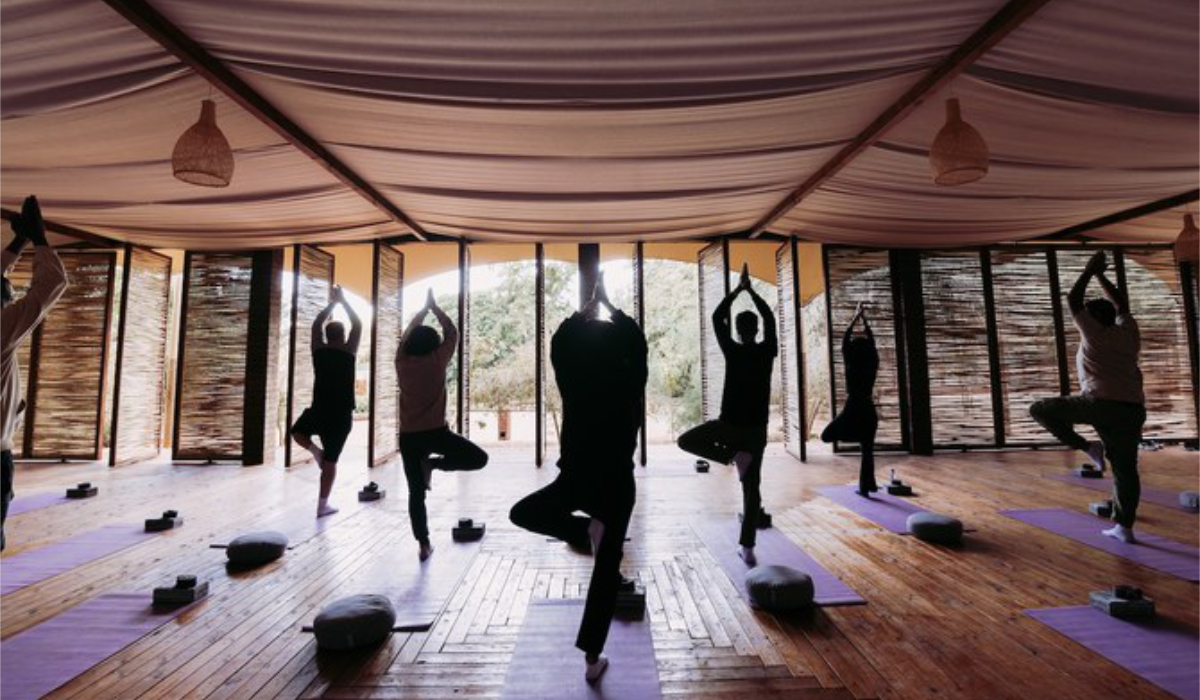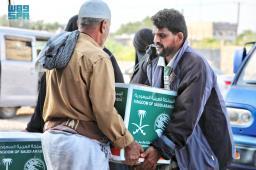JEDDAH: Having unlocked the transformative power of yoga in her own life, certified instructor Lana Nazer is now driven by the geuine desire to empower the Saudi community reach their full potential with the physical and mental benefits of the practice.
Her introduction to the realm of yoga began with her mother’s influence. She grew up seeing her do yoga and was drawn to the beauty and simplicity of the positions.
She recalls how, as a child, she used to watch a yoga lesson on a DVD player, laying the groundwork for a practice that blossomed during her teenage years in Canada.

Lana Nazer aims to inspire others to embark on their yoga journey and experience the healing and empowerment it can provide. (Instagram/lananazer_ official/Supplied)
Nazer shared her inspiring journey through yoga with Arab News, from her early exposure to the practice to becoming a certified instructor.
When asked about how it all started, she said she has been practicing yoga for over 33 years. “Thanks to my mom introducing it to me when I was a kid. It’s not just about poses; it’s like my daily joy boost, keeping me peaceful, joyful and optimistic through life's twists,” she said.
“Since then, my yoga path has taken me to various trainings across the US, UK, and Europe.”
The Saudi Yoga Committee has played a crucial role in promoting yoga. Their efforts have contributed to the growth of yoga in the Kingdom, fostering awareness, and creating a supportive environment for practitioners.
Lana Nazer, Yoga instructor
While life took her on different paths, including college and work, yoga remained a constant presence in the background. “My journey with yoga has been intertwined with a lifelong exposure to the practice. Initially, it was merely a workout routine for me. The pivotal moment came at 15 when I joined a hot yoga class with my mom, sparking an instant obsession.
“Through college, it evolved into a daily necessity. After college, a job opportunity led me to the US, where I decided to embark on teacher training — not initially to teach but to deepen my understanding of yoga. Over nine months, I immersed myself in the practice,” she explained.
Yoga also proved beneficial for Nazer’s mental health. “It wasn’t just the physical challenge that captivated me, but the profound mental well-being I experienced post-class. As a naturally fiery person, yoga became my go-to tool for calming my mind and managing my thoughts,” she said.

Lana Nazer aims to inspire others to embark on their yoga journey and experience the healing and empowerment it can provide. (Instagram/lananazer_ official/Supplied)
Nazer’s journey with yoga took another pivotal turn when she decided to share this transformative practice with her community in Saudi Arabia.
It was a decision that did not come lightly, but was rooted in a desire to deepen her connection with yoga and share its transformative power with her own people.
She founded her own brand, Karama Yoga. “I started with a home studio for seven years before opening our new space last Ramadan. Back then, yoga wasn’t popular in the region, but my journey from personal practice to sharing it locally has been a rewarding evolution.”
Karama Yoga represents not just a physical space but a flourishing testament to the collective growth and impact of yoga’s potential, especially in Saudi Arabia.
Speaking about what drives her, she said: “What kept me going on my yoga journey, especially as a Saudi woman offering yoga in Saudi Arabia, boils down to two reasons. Firstly, the name ‘Karama’ draws inspiration from ‘karamat,’ denoting one’s inherent gifts. I firmly believe that everyone possesses a unique gift, and teaching happens to be mine. (Secondly,) I’m not just an instructor, I’m an avid student of yoga, seamlessly integrating it into every aspect of my life.”
As Nazer continues to deepen her practice and build confidence in her teaching skills, she envisions a future where she can share the transformative power of yoga with a broader audience.
She said: “My commitment is deeply rooted in a genuine desire to serve my community. Even before the popularity of yoga and wellness in Saudi, I recognized the profound need within my community for a practice that promotes holistic health — physically, mentally, and emotionally.”
She aims to inspire others to embark on their yoga journey and experience the healing and empowerment it can provide.
Teaching yoga at Karama Yoga enables her to stay connected to the people around her and improve the well-being of her community.
“My goal is to unite, empower and inspire women to be proud of their heritage, love themselves as they are, and improve their relationship with their health and wellness through yoga,” she said.
Nazer, who is considered a pioneer of yoga in Saudi Arabia, praised the role of the Ministry of Sports in recognizing it as a sport and establishing the Saudi Yoga Committee. “It marks a significant shift. It has brought support from the Ministry of Sports and showcases the growing acceptance and importance of yoga in the Kingdom. The entire health and wellness scene is booming in Saudi Arabia. I can finally say that yoga isn’t just a trend, it’s becoming an everyday staple for many community members,” she said.
“The Saudi Yoga Committee has played a crucial role in promoting yoga. Their efforts have contributed to the growth of yoga in the Kingdom, fostering awareness, and creating a supportive environment for practitioners,” she added.
The certified trainer in eight styles of yoga pointed out that Saudis are increasingly drawn to yoga due to its benefits.
“Back then people joined purely for physical reasons, to strengthen their bodies, gain flexibility and soften the stiffness in their bodies. Now, there is a huge shift — students are mostly joining for the mental and emotional benefits: to relieve stress and cope with everyday challenges.”
Recently, Nazer took part in AlUla Wellness Festival and she feels proud to be part of it.
“Being part of the AlUla Wellness Festival was a dream realized. The opportunity to showcase Karama Yoga and contribute to the wellness community aligned seamlessly with the festival’s positive energy and vision.”
Her advice to someone who has never tried yoga? “Two minutes of yoga a day will change your life.”



































